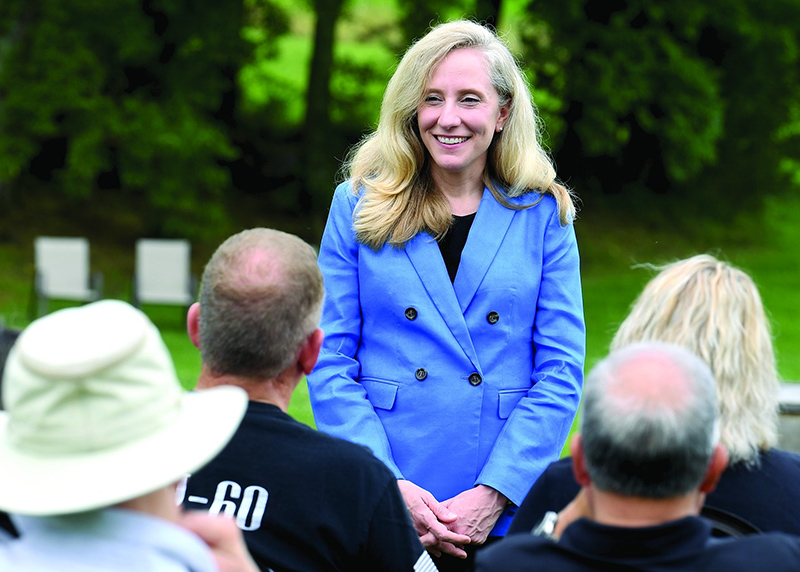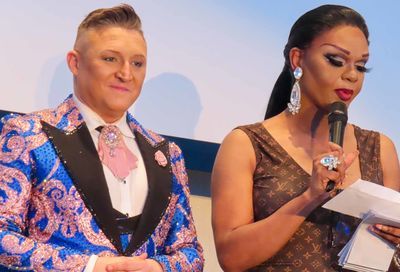Rhode Island House passes gay marriage bill, 51-19
The Rhode Island House of Representatives voted 51-19 Thursday to approve a bill legalizing marriage equality in the Ocean State, setting the measure up to be heard by the state senate.
The bill, H5015, introduced by Rep. Art Handy (D-Cranston) would amend the law to allow two people – so long as they are not related, already married to another person, and are of legal age – to marry, regardless of the gender of each spouse.
 The bill also contains provisions that convert existing same-sex civil unions, currently legal under Rhode Island law, into marriages and strikes language regarding civil unions, including the discriminatory Corvese Amendment, a broadly written clause allowing religious-based institutions, businesses, and individuals even tangentially connected to either to refuse to recognize civil unions, which marriage equality supporters say is in direct conflict with the state’s 1995 nondiscrimination law prohibiting discrimination based on sexual orientation in public accommodations.
The bill also contains provisions that convert existing same-sex civil unions, currently legal under Rhode Island law, into marriages and strikes language regarding civil unions, including the discriminatory Corvese Amendment, a broadly written clause allowing religious-based institutions, businesses, and individuals even tangentially connected to either to refuse to recognize civil unions, which marriage equality supporters say is in direct conflict with the state’s 1995 nondiscrimination law prohibiting discrimination based on sexual orientation in public accommodations.
However, the bill does contain lengthy and explicit provisions that protect the religious liberty of clergy and religious institutions in language more carefully crafted and specific than the Corvese Amendment that provides legal protections for religious institutions but doesn’t conflict with or undermine existing state law.
The bill reads: “Consistent with the guarantees of freedom of religion set forth by both the First Amendment to the United States constitution and article I, section 3 of the Rhode Island constitution, each religious institution has exclusive control over its own religious doctrine, policy and teachings regarding who may marry within their faith, and on what terms.”
The bill further states that no court or state or local governmental body or agency shall interfere with a religious institution’s determination of who may marry. It also says that no “regularly licensed clergyperson, minister, elder, priest, imam, rabbi or similar official” is required to perform same-sex marriages, that such officials are “immune from any civil claim or cause of action based on refusal to solemnize any marriage,” and that no state agency or local government may “base a decision to penalize, withhold benefits from, or refuse to contract with any church or religious institution on the refusal of a person associated with such a church to solemnize a marriage.”
The vote was largely along party lines, with 50 Democrats and House Minority Leader Brian Newberry (R-North Smithfield) voting in favor of the measure, while 14 other Democrats – including William San Bento (D-Pawtucket), who had originally signed on as a cosponsor of the measure – and the chamber’s remaining five Republicans voted against it.
Five other Democrats were absent, but Rep. Donna Walsh (D-Charlestown) was a cosponsor of the bill. Two other representatives were thought to be opponents and the remaining two were thought to be swing votes.
Most of the opposition came from Providence County’s northern and western suburbs, particularly the towns of Woonsocket, Smithfield, Johnston and North Providence. Newport County’s entire delegation voted in favor of the measure, as did 3 of 4 representatives from Bristol County, 9 of 12 representatives from Kent County and 12 of 14 legislators who represent parts of the capital city of Providence. Including Walsh, 18 of the chamber’s 22 female legislators were supportive of the measure, and every Hispanic and African-American legislator except one voted for it.
Supporters of marriage equality celebrated the vote as a historic occasion, particularly those with Rhode Islanders United for Marriage, the coalition seeking to extend civil marriage rights to same-sex couples in the Ocean State. Earlier in the day, the organization had tweeted that it had mobilized constituents to make more than 1,200 contacts with General Assembly lawmakers asking them to support marriage equality.
“Today is a proud and historic day,” Ray Sullivan, campaign director of Rhode Islanders United for Marriage, said in a statement following the vote. “For the first time, the Rhode Island House of Representatives has affirmed that all families in our state should have access to the unique protection and recognition that only civil marriage provides.
“There is incredible momentum behind this movement,” Sullivan continued. “First a unanimous Judiciary Committee vote, and now two-thirds of members, Republicans and Democrats, stood in support of marriage equality.”
Tony De Luca, a former public school teacher and former member of the Rhode Island House of Representatives whose daughter, Luisa, married her wife, Brenda in Massachusetts two years ago, and who had testified with his wife in favor of the marriage equality bill, was also among those celebrating its passage.
“Sylvia and I are so happy Rhode Island has taken this tremendously important step forward in recognizing all loving, committed relationships in the Ocean State,” De Luca said. “We are now closer than ever before to our home state recognizing, protecting and fully respecting Luisa and Brenda’s relationship and the relationships of countless other Rhode Island families.”
The measure now heads to the Rhode Island Senate, where Senate President M. Teresa Paiva-Weed (D-Newport), an opponent of marriage equality, has promised a marriage equality bill will receive a vote in the Judiciary Committee. Sen. Donna Nesselbush (D-Pawtucket), one of four LGBT legislators in the General Assembly and the only out lesbian in the upper chamber, has sponsored a bill similar to Handy’s.
Only four of the Judiciary Committee’s 10 members, including Nesselbush, are on record as supporting marriage equality, though another committee member, Sen. Paul Jabour (D-Providence), has said he opposes same-sex marriage but might vote to move the bill to the floor if his constituents are in favor of it. The measure needs six votes to pass out of committee.
Some opponents in the Senate are cosponsoring a bill that would place a referendum seeking to amend Rhode Island’s constitution to ban marriage equality on the 2014 ballot, a mid-term election when voter turnout is typically lower and the electorate skews older and more socially conservative. But Gov. Lincoln Chafee, an Independent, has said he will veto any measure that would put marriage equality to a referendum.
[Photo: Visual breakdown of Rhode Island House districts based on how a representative voted. Green means yes, red means no and yellow means not voting (courtesy of RIGIS website).]
Support Metro Weekly’s Journalism
These are challenging times for news organizations. And yet it’s crucial we stay active and provide vital resources and information to both our local readers and the world. So won’t you please take a moment and consider supporting Metro Weekly with a membership? For as little as $5 a month, you can help ensure Metro Weekly magazine and MetroWeekly.com remain free, viable resources as we provide the best, most diverse, culturally-resonant LGBTQ coverage in both the D.C. region and around the world. Memberships come with exclusive perks and discounts, your own personal digital delivery of each week’s magazine (and an archive), access to our Member's Lounge when it launches this fall, and exclusive members-only items like Metro Weekly Membership Mugs and Tote Bags! Check out all our membership levels here and please join us today!





















